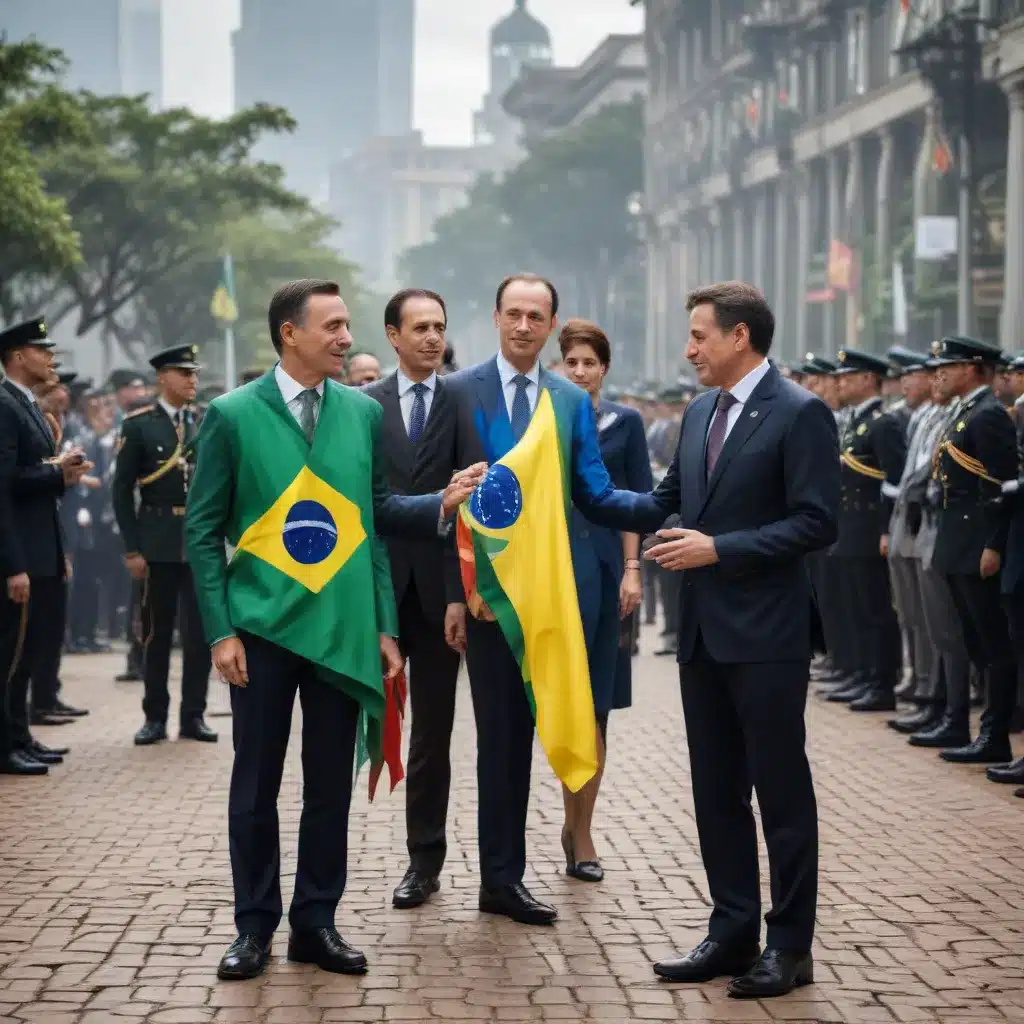
Brazil’s Foreign Policy Priorities
As a prominent global player, Brazil has long navigated a complex web of geopolitical tensions and shifting power dynamics on the international stage. With its vast economic resources, regional influence, and storied diplomatic history, the country has sought to strategically leverage its unique position to advance its interests both at home and abroad.
At the forefront of Brazil’s foreign policy priorities lies a keen focus on economic interests and trade partnerships. As one of the world’s largest economies, Brazil has assiduously cultivated relationships with both traditional and emerging markets, seeking to expand its export markets, attract foreign investment, and secure favourable trade agreements. From deepening ties with its South American neighbours to forging new partnerships with rising powers in Asia and Africa, Brazil has adeptly employed economic statecraft to bolster its global standing.
Parallel to its economic diplomacy, Brazil has also placed a strong emphasis on regional integration in South America. As the continent’s powerhouse, Brazil has played a leading role in fostering greater political, economic, and social cohesion among its regional partners. Through initiatives such as the Mercosur trade bloc and the Union of South American Nations (UNASUR), Brazil has sought to position itself as a regional hegemon, while also promoting shared prosperity and stability across South America.
Underpinning these pragmatic pursuits, Brazil has also been a vocal proponent of reforming global governance and strengthening multilateral institutions. As a founding member of the United Nations and a prominent voice within the G20, Brazil has consistently advocated for a more equitable and representative international order. From championing the expansion of the UN Security Council to spearheading initiatives on climate change and sustainable development, Brazil has sought to amplify the concerns of the Global South and challenge the traditional dominance of the Western powers.
Navigating International Diplomacy
In navigating this complex geopolitical landscape, Brazil has employed a diverse array of diplomatic engagements and negotiations. The country’s seasoned diplomats have deftly leveraged both bilateral and multilateral channels to advance its interests, engaging in delicate balancing acts between competing powers and forging strategic alliances where necessary.
One particularly noteworthy example of Brazil’s diplomatic prowess is its conflict resolution and mediation efforts. Drawing on its long history of peaceful conflict resolution, Brazil has frequently played the role of impartial arbiter in regional and global disputes. From facilitating negotiations between Israel and Palestine to brokering ceasefires in the midst of the Russo-Ukrainian war, Brazil has demonstrated its capacity to navigate complex geopolitical tensions and foster lasting solutions.
Underpinning these diplomatic endeavours, Brazil has also cultivated a network of strategic alliances and partnerships that have bolstered its influence on the world stage. By aligning with like-minded countries in the Global South, forging closer ties with emerging economic powers, and maintaining productive relationships with traditional Western allies, Brazil has sought to diversify its diplomatic portfolio and amplify its voice within the international community.
The Role of Brazilian Football in Diplomacy
Interestingly, Brazil’s soft power and cultural diplomacy have also played a significant role in its international engagement. As the undisputed powerhouse of world football, Brazil has leveraged the global appeal of its iconic players, legendary teams, and passionate fan culture to project a positive image of the country and its people. From hosting high-profile international tournaments to sending its national team on goodwill tours, Brazil has effectively deployed its footballing prowess as a diplomatic tool, strengthening cultural and people-to-people ties around the world.
Moreover, sports diplomacy and international events have become an integral part of Brazil’s foreign policy arsenal. The country’s successful hosting of the 2014 FIFA World Cup and the 2016 Summer Olympics, for instance, not only showcased its infrastructure and organizational capabilities but also provided a platform for the government to engage with a global audience and promote its strategic interests.
Challenges and Obstacles in Geopolitical Tensions
Despite Brazil’s diplomatic acumen and its adept navigation of international affairs, the country has also faced its fair share of domestic political dynamics that have at times complicated its foreign policy efforts. Periods of political instability, ideological shifts, and power struggles within the Brazilian government have at times led to inconsistencies in its international posturing, undermining its credibility and effectiveness on the global stage.
Furthermore, Brazil has had to grapple with the ideological differences and rivalries that have come to define the contemporary geopolitical landscape. As the world has become increasingly polarized between competing visions of democracy, authoritarianism, and economic models, Brazil has had to carefully navigate these divisions, often finding itself caught between the interests of the Global North and the Global South.
Ultimately, Brazil’s ability to overcome the obstacles of geopolitical tensions and continue to assert its influence on the international stage will hinge on its capacity to adapt to the evolving global power dynamics. As the world order undergoes a profound transformation, marked by the rise of new economic powerhouses and the waning of traditional Western hegemony, Brazil will need to continually reassess its strategies, forge new alliances, and leverage its unique strengths to carve out a prominent role for itself in shaping the future of global governance.
Through its adept economic diplomacy, regional integration efforts, and principled stance on multilateralism, Brazil has demonstrated its potential to be a bridge-builder and a voice of reason in an increasingly volatile world. As the country continues to navigate the complexities of geopolitical tensions, its ability to harness the power of its football culture, its diplomatic acumen, and its strategic vision will be crucial in determining its long-term success on the international stage.

